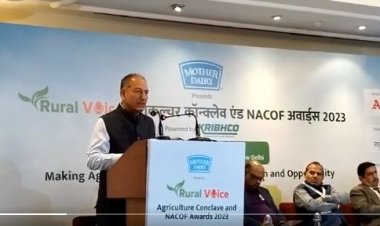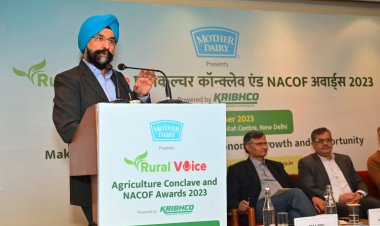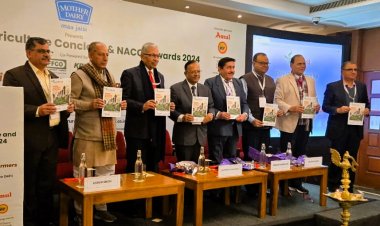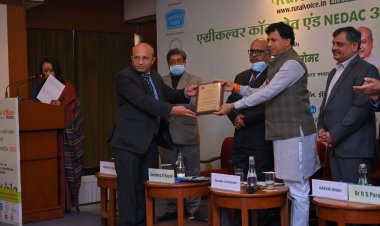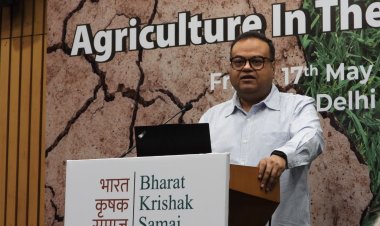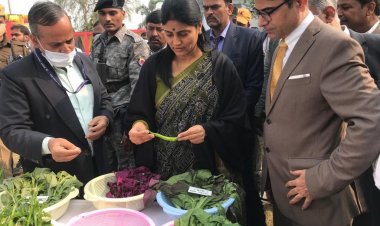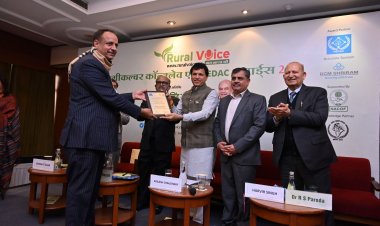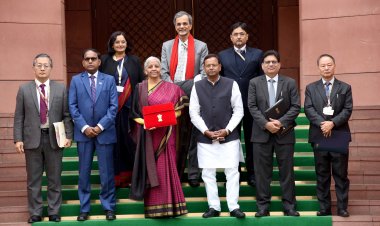Agenda for Rural India: Voices from Rural North-east India
A convening titled the 'Agenda for Rural India – Meghalaya,' successfully brought together voices from rural communities spanning across seven districts within the state. The diverse group of participants brought a wealth of experiences and perspectives to the discussions, enriching the discourse on rural development and sustainability.
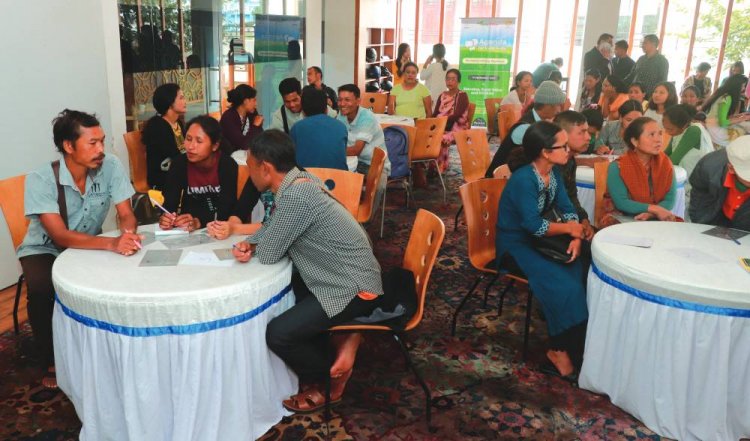
A convening titled the 'Agenda for Rural India – Meghalaya,' successfully brought together voices from rural communities spanning across seven districts within the state. The diverse group of participants brought a wealth of experiences and perspectives to the discussions, enriching the discourse on rural development and sustainability.
Quote: ‘I aspire for a smart clean and green village in Meghalaya by 2030’ - West Khasi Hills farmer
Despite its reputation as one of the wettest regions globally, Meghalaya grapples with water scarcity issues, particularly during the winter months. This scarcity adversely impacts the availability of clean drinking water and hinders agricultural irrigation activities.
Livelihoods: ‘In Meghalaya, we're confronted with significant challenges in our livelihoods’ remarked a participant from East Jaintia Hills. She shared insights about the extensive unemployment situation in the state, emphasizing the necessity for job opportunities and skill development programs to integrate the youth into the labour force. Other voices in the room from Ri Bhoi, Garo hills among other districts, highlighted the absence of rural food processing facilities which has hindered their ability to add value to agricultural products. Finding innovative ways to encourage entrepreneurship and rural enterprise could be pivotal in enhancing livelihood prospects for the people of Meghalaya as echoed by the participants.
Rural development: Participants brought to light the significant concern of road connectivity which hinders accessibility and limits opportunities for trade and transportation. The common voices across all the seven districts brought forward the insufficient health infrastructure coupled with the lack of consistent access to education facilities due to irregular teachers and high dropout rates. Additionally, a teacher from East Khasi Hills highlighted the scarcity of drinking water resources during the winter.
A large proportion of the participants stated that climate change induced pest infestations pose a significant threat to crop yields, exacerbating an already precarious situation for farmers. In this regard, farmers expressed their concerns on struggling to secure fair market prices for their produce and experiencing delays in receiving payments. One of the farmers from Eastern West Khasi hills stated that the unpredictable weather conditions and an increase in extreme events have severely impacted crop yields and the livelihoods of rural farmers.
The participants from Meghalaya are calling for a regulatory role of the government in the agricultural market to protect the interests of farmers, promote fairness, and ensure that the agricultural sector remains stable and economically viable. Notably, a farmer from Ri Bhoi district highlighted the pressing need for cold storage facilities
Substance abuse: In Meghalaya, social issues concerning the younger generation are emerging as focal points of concern as stated by the participants. A village executive member expressed that the practice of early marriage among children raises questions about their overall well-being and access to education and opportunities. Artisans from Khasi Hills iterated about the increasing trend of youth succumbing to addiction to drugs and alcohol which poses potential long-term health and societal challenges.
Youth Interaction: We actively engaged with the youth of Meghalaya in Shillong to gain profound insights into their unique challenges and dreams. They voiced their concerns such as the inadequacy of attention directed towards vital rural infrastructure elements like roads, healthcare, and education. The youth vehemently stressed the need for government support to unlock the vast potential of rural areas, encompassing their abundant resources, the promotion of tourism, sporting opportunities, and the flourishing of the arts. Furthermore, the discussion delved into exploring pathways through which the youth could foster an entrepreneurial mindset and contribute to the growth and prosperity of their communities.
(The author is Senior Program Manager with Socratus.)



 Join the RuralVoice whatsapp group
Join the RuralVoice whatsapp group

















